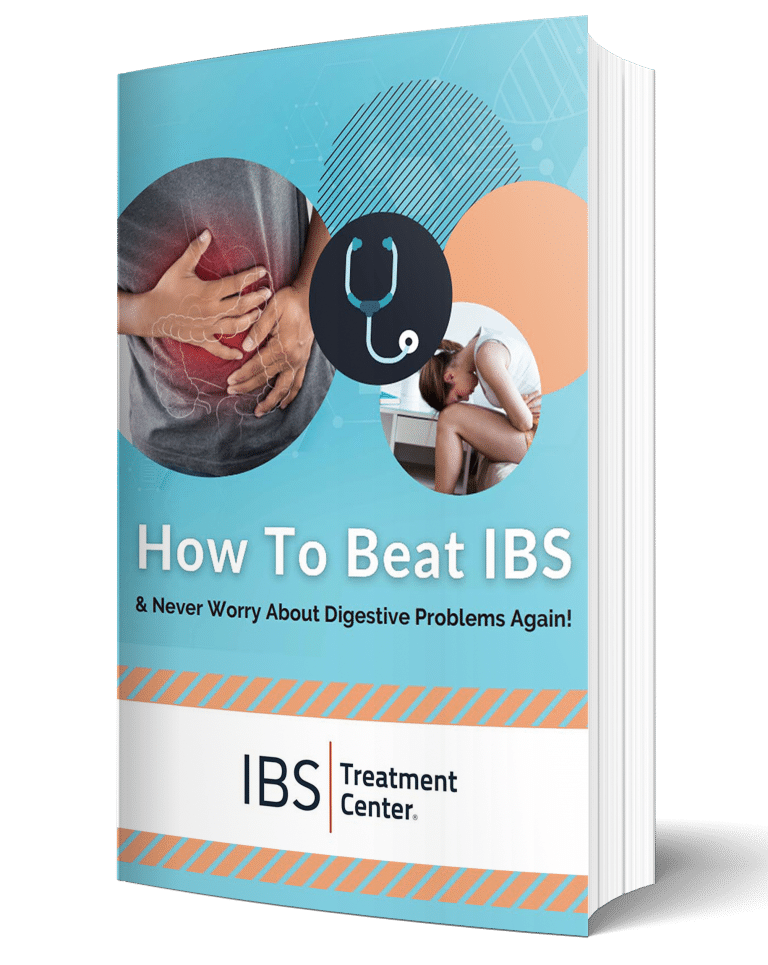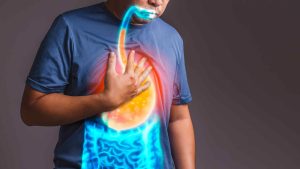Here’s what we’re going to cover
- What Are PPIs?
- So, What’s The Problem?
- Why Do You Need Stomach Acid?
- Not Having Enough Stomach Acid Increases A Lot of Risk
- What You Should Do
PPIs are used to treat heartburn and reflux, but they also cause many health problems. They decrease the nutrients that you get from your food, they change the pH of your microbiome and thus change that very important ecosystem inside you, they increase the risk of bacterial overgrowth and Candida, and they can cause other digestive problems. In this video I will discuss what PPIs are, how they were intended to be used, how they can cause any of the issues I just mentioned, and how you should use them.
Over my career as a physician, I’ve seen hundreds and possibly thousands of patients who’ve been put on PPIs by other doctors for very long periods of time. This has often caused them as many, and sometimes more, problems than they’ve solved.
What Are PPIs?
PPI stands for Proton Pump Inhibitor. You know them as Prevacid, Protonix, Prilosec (omeprazole), and Nexium, among other names. PPIs stop or greatly reduce the acid production in your stomach. They are similar to H2 blockers such as Pepcid AC, Zantac (ranitidine), and Tagamet. The main difference is that PPIs are generally stronger than H2 blockers and last longer.
PPIs were intended to be used for GERD, or gastroesophageal reflux disease, although they are often used for other digestive problems too. By shutting down your acid production, they may give you relief from the reflux and heartburn, and they reduce the chance of you developing Barret’s Esophagus. Barret’s Esophagus is an erosion of the lower esophagus, and about 12% or so of people with chronic GERD get Barret’s Esophagus.
And why is this important? Well, not only does it sound bad, but about one half of one percent of people with Barret’s Esophagus develop esophageal cancer. So, if you do the math, if you have reflux or GERD, then you have a tiny risk for developing esophageal cancer. It’s quite rare. And even if you have Barrett’s Esophagus, then you still have a less than 1% chance of developing esophageal cancer.
All of that is to say that this is the justification for having people on long term PPIs and H2 blockers. However, they were never designed to be used long term. And what is long term? For most cases, the FDA defines long term use of PPIs as longer than 8 weeks.
So, What’s The Problem?
I want to repeat that PPIs were only intended to be used for about 8 weeks, 12 at most. That’s 2-3 months. But I know for a fact that many, many people use them way, way longer than that. Many people even use them for years. And that’s where problems develop.
You need stomach acid. You have it for a reason. Actually, for lots of reasons. Fundamentally it’s because you evolved to produce stomach acid. So, you can’t just eliminate it and expect to be healthy.
And I don’t want you to let others give you the idea that you are now producing too much stomach acid and that you need to turn down the faucet. There is no evidence for that theory. You didn’t just get to be the age you are now and suddenly start producing too much stomach acid.
You are producing the same amount of stomach acid that you’ve always produced, but now you are getting symptoms related to it. So, something else is happening that is causing your lower esophagus to be susceptible to your stomach acid, resulting in heartburn and reflux. But it isn’t because you have too much stomach acid.
Why Do You Need Stomach Acid?
There are at least 5 major reasons why you need stomach acid.
First, you need it to properly digest your food. If you don’t have enough stomach acid, then you can’t break down your food. And if you don’t break down your food properly, then you don’t get the nutrients out of your food that you normally would.
Second, you need stomach acid to help kill bacteria coming down that pipe. We all get exposed to bacteria this way.
Third, stomach acid production activates some enzymes, which you also need for digesting your food.
Fourth, stomach acid is required for the absorption of some specific and very important nutrients, such as vitamin B12 and minerals such as calcium, magnesium, and iron.
And finally, stomach acid sets the stage for the entire microbiome of your digestive tract. Like any ecosystem, your microbiome is designed to operate optimally under specific conditions. This not only includes the nutrients that it gets from proper digestion, but your acid production also sets the stage for creating the pH and the changes in pH that ultimately leads to the environment for the organisms in your microbiome.
Not Having Enough Stomach Acid Increases the Risk of Following:
We know that your risk for developing osteoporosis goes up significantly with the long-term use of PPIs and H2 blockers.
We also know that the long-term use of PPIs increases your risk of developing cardiovascular disease and kidney disease.
And it increases the risk of developing diabetes.
And it significantly increases the risk of developing bacterial overgrowths and Candida overgrowths in the digestive system, which messes up your microbiome, and in turn can lead to host of digestive problems, including IBS.
What You Should Do
It’s very important to recognize that PPIs are not the answer. They do not treat the cause of your problem. They are a short-term Band-Aid that you should only use very temporarily, and after that only sporadically, while you are figuring out what the underlying cause is for your heartburn and reflux. And there are causes for heartburn and reflux. Lots of them. And you can do something about them and heal your GERD.
It’s not necessarily easy to figure out those causes, but it is doable. And it’s not easy to get off of PPIs after you’ve been using them a long time. But that is also doable. So don’t give up. You can do it.
And if you need help getting off PPIs or dealing with heartburn or GERD, don’t hesitate to reach out to us at the number or email below. We work with people all over the world via telemedicine, and we’d love to work with you too.
Related Content:
Why Healthcare for IBS Is BS
The Causes of Multiple Chemical Sensitivity Includes Candida
Why I Created the IBS Treatment Center
How Do I Know If I Have IBS?
The Emergency Room Secret About Treating Abdominal Pain

Dr. Wangen is the founder and medical director of the IBS Treatment Center, the award winning author of two books, and a nationally recognized speaker on digestive disorders. He has been on ABC, NBC, and Fox as well as public radio, and was named one of Seattle’s Top Doctors by Seattle Magazine.


